Caryn’s Thoughts
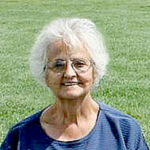 In the years since I first became interested in my family history, so much has been revealed to me. Sites like Ancestry.com, MyHeritage.com, GedMatch.com, and others have made my journey and the journeys of so many others, not only easier, but possible. DNA testing finds matches that no one could find before, and for those who were adopted, that is a very big deal. For the rest of us, it connected us with lines we didn’t know about that tore down some of the “brick walls” we had come up against.
In the years since I first became interested in my family history, so much has been revealed to me. Sites like Ancestry.com, MyHeritage.com, GedMatch.com, and others have made my journey and the journeys of so many others, not only easier, but possible. DNA testing finds matches that no one could find before, and for those who were adopted, that is a very big deal. For the rest of us, it connected us with lines we didn’t know about that tore down some of the “brick walls” we had come up against.
All that was just amazing, but there was one thing that I still lack…the stories my parents, grandparents, aunts, and uncles could tell me. I have started to remedy that now, with my aunt, Sandy Pattan, but we both have found that we have regrets about the missed opportunities of the past. We have been kicking ourselves about the family who have gone to Heaven and taken with them the stories of our past. We have talked about why we have allowed that to happen. Of course, the answer is simple. As kids, we didn’t care about the past. We were looking to our future. We wanted to be grown up…to be 16, 21, 25 and so on. Those were the important things, not what happened 20, 50, or 100 years ago. None of that seemed even remotely real to us. More’s the pity, because looking back now, I wish I would have been more “forward thinking” as a kid. I know that as we get older, we suddenly find that our parents are gone, Then almost as if something strange was triggered, the 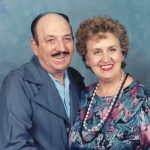 questions we should have asked years ago, come flooding in. Suddenly we think, “I need to call Mom or Dad, and ask them about that.” Then, as if we just woke up from a long coma, we recall that they aren’t here. They are in Heaven, and our chance to ask them this or that is gone.
questions we should have asked years ago, come flooding in. Suddenly we think, “I need to call Mom or Dad, and ask them about that.” Then, as if we just woke up from a long coma, we recall that they aren’t here. They are in Heaven, and our chance to ask them this or that is gone.
I think this happens to everyone who has lost a parent. The realization is slow to manifest, and habit makes us think we can just pick up the phone and call them with our questions. Then there is a “catch in our throat,” a “pain in the pit of our stomach,” and that “ton of bricks” realization that our parents are gone. Then, while we wonder why we hadn’t asked the questions of our parents that we wish we had, we also find that it’s our parents themselves that we miss the most.
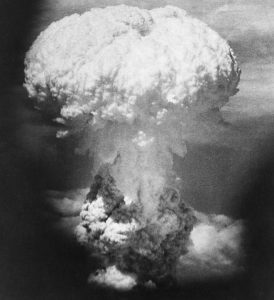 There have always been wars, and wars include bombs of some kind. It is a fact that everyone seems to understand, and to a degree accept. I suppose they look at it as collateral damage, but the reality is that it is people, property, homes, and businesses. Sometimes I wonder if mankind will ever get to a point where collateral damage is too much to pay. Of course, that will not happen. War means death and destruction, and there will be wars as long as time endures.
There have always been wars, and wars include bombs of some kind. It is a fact that everyone seems to understand, and to a degree accept. I suppose they look at it as collateral damage, but the reality is that it is people, property, homes, and businesses. Sometimes I wonder if mankind will ever get to a point where collateral damage is too much to pay. Of course, that will not happen. War means death and destruction, and there will be wars as long as time endures.
The fact is that no sane human being likes the collateral damage that war brings, but there are, unfortunately, many insane heads of states. These people kill thousands of their own people for almost no reason. They simply disagree, or they look different, or they have a different religion, and that means they must die. So, war begins, and more people die to try to free the people who have been oppressed by their hateful dictators.
World War II took in the Axis of Evil nations and the Allies, who were fighting against regimes like the Nazis, and Japanese. Both were terrible, and neither wanted to give up. Finally, when it was decided that Japan had to be stopped at all costs, the United States made the decision to drop the atomic bomb on Hiroshima, on August 6, 1945, and on Nagasaki on August 9, 1945. The two bombings killed between 129,000 and 226,000 people, most of whom were civilians. It was another in a long list of bombing events of World War II and many other wars. It was all the same old story, right? Wrong.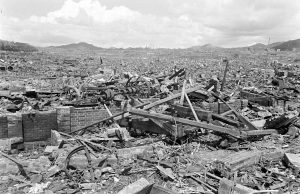
The two Atomic Bombs dropped, changed the world. They were both the first, and the last times Atomic Bombs were dropped in war. It was as if the world finally saw what these bombs did to people. It was as if they finally felt sick to their stomach…both sides!! During the Cold War, there were a couple of times when the United States and the Soviet Union came close to using the Atomic Bomb, but they decided that they just couldn’t do it. That said, they decided that there really was a line that should never be crossed. Since 1945, and the dropping of two of the most devastating bombs ever, mankind has finally decided that we should not go there again, thankfully.
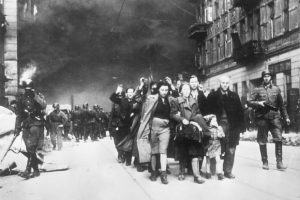 When Hitler began his systematic genocide of the Jewish people during World War II, many of the previously free people found themselves suddenly jailed. They had no weapons with which to fight for their freedom, but they knew that they were going to have to make a decision to either fight for their lives, or lose their lives. Some were too old or too young to fight, and some were women, and many men didn’t think these women could handle the fight at hand, but at some point they would have to fight or die. Hitler was relentless, and the Jewish people were fighting for their lives.
When Hitler began his systematic genocide of the Jewish people during World War II, many of the previously free people found themselves suddenly jailed. They had no weapons with which to fight for their freedom, but they knew that they were going to have to make a decision to either fight for their lives, or lose their lives. Some were too old or too young to fight, and some were women, and many men didn’t think these women could handle the fight at hand, but at some point they would have to fight or die. Hitler was relentless, and the Jewish people were fighting for their lives.
When Hitler set his plan in motion, he made it impossible for them to do business. Overnight, all Jewish businesses were blackballed. That was how it started anyway. The Jewish people were no longer allowed to do business with non-Jews. That action meant that the income that these successful Jewish people had, was instantly taken from them…symbolically. Later, It would be taken in every way. Their shops were looted, their property confiscated, and their homes given to others. As the Jewish people were banished to the ghettos, they had just moments to pack a small bag with the things they could carry, or more importantly the things they couldn’t do without…clothing, any food items, and keepsakes. It wasn’t much. There wasn’t room for much.
The ghettos were complete pits of filth, disease, and humanity. People were piled into cramped quarters, forced to share living quarters with people they didn’t know. Of course, the tight quarters was not the worst thing about the ghettos. The people had no rights. If a Nazi soldier raped, beat, or shot a Jewish person, there was no punishment, because they were no longer considered human, and therefore had no rights. Although it was considered an abomination to sleep with a Jewish person, rape was actually considered just another form of punishment. The Nazis didn’t care. A death meant one less Jew to have to house.
The Warsaw ghetto in Poland occupied an area of less than two square miles but soon held almost 500,000 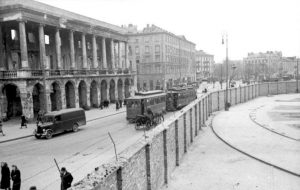 Jews in the deplorable conditions common to ghettos. Disease and starvation killed thousands every month, and when death did not come fast enough, the Jews were transferred to the next level of their torture. Beginning in July 1942, 6,000 Jews per day were transferred to the Treblinka concentration camp. They went by way of cattle cars, packed so tightly that it was standing room only. In fact, if a prisoner died along the way, their body remained standing…held up by the people so tightly packed in around them.
Jews in the deplorable conditions common to ghettos. Disease and starvation killed thousands every month, and when death did not come fast enough, the Jews were transferred to the next level of their torture. Beginning in July 1942, 6,000 Jews per day were transferred to the Treblinka concentration camp. They went by way of cattle cars, packed so tightly that it was standing room only. In fact, if a prisoner died along the way, their body remained standing…held up by the people so tightly packed in around them.
As word got back to the ghettos that the death rate of those being transferred to the camps, either on the trains, or in the gas chambers when they reached their final destination, the Jewish people knew that something was going to have to be done. They would have to fight for their lives. Of course, the resistance was already working. There were those who saw the writing on the wall from the start. When word came down that the Warsaw ghetto was going to be closed and the Jews deported to the camps, it was time.
On January 18, 1943, as Nazi forces were attempting to clear out the Warsaw ghetto they were met by gunfire from Jewish resistance fighters. Although the Nazis assured the remaining Jews that their relatives and friends were being sent to work camps, they no longer believed the Nazi lies. An underground resistance group had been established in the ghetto, called the Jewish Combat Organization (ZOB). Limited arms had been acquired at great cost, and it didn’t matter, because this was a fight to the death. As the Nazis entered, the ZOB unit ambushed them, killing a number of German soldiers. The fighting lasted for several days.
On January 18, 1943, when the Nazis entered the ghetto to transport a group of Jewish prisoners, a ZOB unit ambushed them. Fighting lasted for several days, and a number of Germans soldiers were killed before they withdrew. On April 19th, Heinrich Himmler announced that the ghetto was to be emptied of its residents in honor of Hitler’s birthday the next day. I guess Himmler thought murdering all those people would make a great birthday gift for Hitler. That day, more than 1,000 SS soldiers entered the confines of the ghetto, armed with tanks and heavy artillery. Of the 60,000 Jews remaining in the ghetto hid in secret bunkers, more than 1,000 of the ZOB resistance members took up arms and fought back with gunfire and homemade bombs. Again the soldiers withdrew, despite only suffering moderate casualties. Then on April 24th, the Germans and launched an all-out attack against the Warsaw Jews.
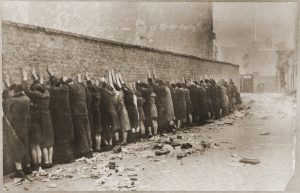 The German soldiers stormed through the ghetto, blowing up buildings everywhere. They slaughtered thousands of innocent people. The ZOB took to the sewers to continue the fight. It was cover, but how awful. Then, on May 8th their command bunker fell to the Germans and their resistant leaders committed suicide. I’m sure they thought they had failed their people. By May 16th, the ghetto was firmly under Nazi control, and the last Warsaw Jews were deported to Treblinka. Some 300 German soldiers were killed, and thousands of Warsaw Jews were massacred during the Warsaw Uprising, but that wasn’t the end of the death. Virtually all those who survived the Uprising to reach Treblinka were dead by the end of the war.
The German soldiers stormed through the ghetto, blowing up buildings everywhere. They slaughtered thousands of innocent people. The ZOB took to the sewers to continue the fight. It was cover, but how awful. Then, on May 8th their command bunker fell to the Germans and their resistant leaders committed suicide. I’m sure they thought they had failed their people. By May 16th, the ghetto was firmly under Nazi control, and the last Warsaw Jews were deported to Treblinka. Some 300 German soldiers were killed, and thousands of Warsaw Jews were massacred during the Warsaw Uprising, but that wasn’t the end of the death. Virtually all those who survived the Uprising to reach Treblinka were dead by the end of the war.
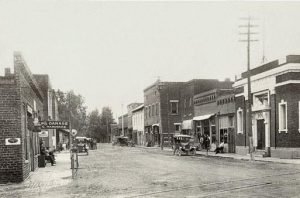 Jessie Earl, who was born in Crawfordville, Indiana on April 22, 1887 to John and Amanda (Tracy) Earl, was a very resourceful, and brave girl, although not many people would have known that had she not found herself in the situation she did on a Monday in December, 1901. School was over for the day, and Jessie was walking home. Her family was living in Advance, Indiana then, which was a small town about 15 miles west of Crawfordsville. Jessie’s walk took her beside the train tracks for a about a mile.
Jessie Earl, who was born in Crawfordville, Indiana on April 22, 1887 to John and Amanda (Tracy) Earl, was a very resourceful, and brave girl, although not many people would have known that had she not found herself in the situation she did on a Monday in December, 1901. School was over for the day, and Jessie was walking home. Her family was living in Advance, Indiana then, which was a small town about 15 miles west of Crawfordsville. Jessie’s walk took her beside the train tracks for a about a mile.
As Jessie was walking along she saw that the railroad trestle she passed every day was on fire. She immediately headed to find someone to warn, but at that moment she heard the train whistle. She knew she was out of time, and she would have to save the train herself. I can’t imagine a girl of just 13 years having the courage to do what she did next. The train, Chicago and Southwestern Railroad’s east-bound passenger train, was headed for serious danger, and no one knew what was happening…except a 13 year old girl. Jessie, however, was no ordinary girl.
She saw that the train was headed toward the burning trestle at full speed. By the time they saw the fire, it would be too late to stop the train. Jessie immediately dropped her basket and rushed down the track toward the train, running as fast as she could. She started waving her apron, to attract the attention of the engineer, who upon seeing the little girl, brought the train to a safe stop. I’m sure that his first thought was, “What is this crazy girl doing?” Nevertheless, he made the quick decision to stop to find out what the emergency was.
Upon inspection, the crew found that the burning trestle would never have held the weight of the train, and the resulting crash and derailment would have been catastrophic for the passengers and crew. When they saw what Jessie had saved them from, the crew and passengers almost smothered the little girl with congratulations for her brave act and gave her many mementoes as rewards for saving the train from plunging into the creek, 30 feet below. Of course, like most heroes, Jessie just thought she had done what any other person would do. 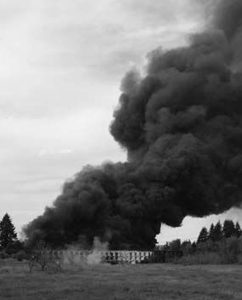 Still, you never know. We have all witnessed people walking right by a person lying on the ground, or driving past the scene of an accident without lending aid, or worse yet, filming it on their smart phones to post on the internet. Of course, the internet didn’t exist then, but I like to think it wouldn’t have mattered to little Jessie Earl. I like to think that she would have done what she did either way, because Jessie Earl seems like a heroic kind of girl.
Still, you never know. We have all witnessed people walking right by a person lying on the ground, or driving past the scene of an accident without lending aid, or worse yet, filming it on their smart phones to post on the internet. Of course, the internet didn’t exist then, but I like to think it wouldn’t have mattered to little Jessie Earl. I like to think that she would have done what she did either way, because Jessie Earl seems like a heroic kind of girl.
Sadly, I don’t have a picture of Jessie Earl, but I learned that she married Howard Bratton, and they three children…Dorthea, James, and Opal who went on to give them children and grandchildren. I wonder if they know that their grandmother and great grandmother was a true hero. I wonder if Jessie’s children ever knew. I wouldn’t be surprised to find that they didn’t. Jessie passed away on February 15, 1940, in Muncie, Indiana. She was 52 years old.
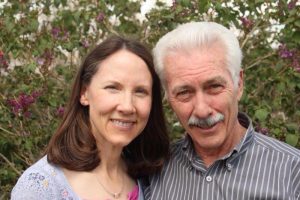 When my sister-in-law, Jennifer Parmely met her partner, Brian Cratty, I remember thinking about how quiet he was. I suppose it isn’t surprising to have someone be a little quiet when meeting a large family like ours is. It takes a brave person to walk into a big family for the first time. I know, because I’ve been there. So when Jennifer brought Brian to meet the family I felt a little bit sorry for him. It’s sort of like standing before a crowd of hundreds of people to give your first public speech, and you’re 13 years old. Once you get to know Brian, you can see the gentle, kind man that Jennifer fell in love with.
When my sister-in-law, Jennifer Parmely met her partner, Brian Cratty, I remember thinking about how quiet he was. I suppose it isn’t surprising to have someone be a little quiet when meeting a large family like ours is. It takes a brave person to walk into a big family for the first time. I know, because I’ve been there. So when Jennifer brought Brian to meet the family I felt a little bit sorry for him. It’s sort of like standing before a crowd of hundreds of people to give your first public speech, and you’re 13 years old. Once you get to know Brian, you can see the gentle, kind man that Jennifer fell in love with.
Brian and Jennifer are soulmates. They have the same interests, and are going in the same direction. They love spending time on the mountain, and the time of year doesn’t matter a bit. For them, Summer is no different than Winter, when it comes to how much they like it that is. I personally don’t care for Winter…in any location. I love the mountains, but in the Summer, when I can hike. Brian and Jennifer, and most of their family, love to ski, so the mountain in the Winter is great for them too. Brian likes to ski, and hike, but one of his favorite 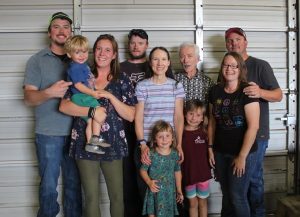 activities in mountain biking. He gets on his bicycle and hits the trails around their cabin on the mountain. She might not see him for an hour at a time, because he is out there in his own world.
activities in mountain biking. He gets on his bicycle and hits the trails around their cabin on the mountain. She might not see him for an hour at a time, because he is out there in his own world.
Brian has been such a blessing to Jennifer’s family, and to the rest of our family. The little kids love him, and he is very good to them. He fits in well with all of us, and while he is a quiet man, he can carry on a great conversation with the best of ’em. We all love having him around, and he is a great partner to Jennifer, and grandpa to the babies. Today is Brian’s birthday. Happy birthday Brian!! Have a great day!! We love you!!
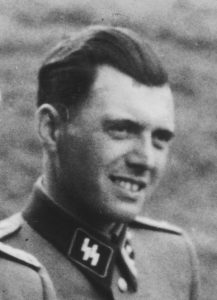
 Rolf Mengele was born in March 16, 1944 in Freiburg, Germany to Irene Schoenbein and Dr Joseph Mengele…also known as the Angel of Death, but his father went into hiding after the war, and escaped to Argentina in 1949. Because of this, Rolf grew up in a loving home with his grandparents and his mother. He didn’t meet his father until he was a teenager, because he was told that he was dead.
Rolf Mengele was born in March 16, 1944 in Freiburg, Germany to Irene Schoenbein and Dr Joseph Mengele…also known as the Angel of Death, but his father went into hiding after the war, and escaped to Argentina in 1949. Because of this, Rolf grew up in a loving home with his grandparents and his mother. He didn’t meet his father until he was a teenager, because he was told that he was dead.
When he turned 16, Rolf learned that his father was actually alive when Joseph made contact with him. It was an unhappy revelation for him. His father made attempts to bond with him through letters, even writing and illustrating a children’s book for him, but to no avail. His father’s attempts didn’t stop the feelings of disgust he felt about his father’s beliefs and actions. Still, at 16, he felt a curiosity about his dad, and wanted to meet him. Since Joseph Mengele was still wanted by Nazi-Hunters, for his war crimes, it took Rolf 5 years to arrange a trip to Brazil to visit his father.
Rolf had to travel under a stolen passport, but he wanted to go, because he wanted to understand how his father could have been an active participant in the Nazi death machine. He didn’t wait long, after his arrival, to bring up the subject of Auschwitz. His dad immediately became defensive, denying any responsibility for the atrocities, but actually admitting to participating in the nightmare “experiments” that the Jewish people were subjected to. He acted like he was doing them a favor, saying, “What was I supposed to do with those people? They were sick and half-dead when thy arrived.” He tried to tell his son that all he was doing was to determine who was fit to work. He actually claimed to have saved several thousand people by allowing them to work.
After his visit, Rolf found it “impossible to betray his father’ location,” but his feelings of disgust remained with him for the rest of his father’s life. Rolf says, “I didn’t even bother to listen to him or think of his ideas. I simply rejected everything he presented. I will never understand how human beings 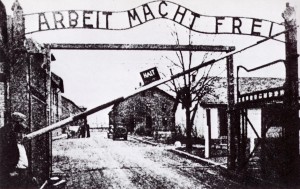 could do those things. That my father was one of them doesn’t change my opinion.”
could do those things. That my father was one of them doesn’t change my opinion.”
Joseph Mengele’s health began to deteriorate in 1972. In 1976 he suffered a stroke. Then on February 7, 1979, he had another stroke while swimming in the Atlantic Ocean off of Bertioga, Brazil during a visit with friends. He drown and was buried under the alias of Wolfgang Gerhard, which he had been using since 1971. Rolf abandoned the Mengele name in 1980, taking his wife’s last name to spare his children the burden of their grandfather’s past. Rolf and his family live in Freiburg, Germany, where he is an attorney.
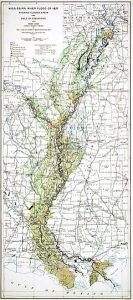 The Mississippi River is a is the widest river in the United States. It’s mere size and the amount of water in it, makes one expect that at some point, it is going to flood. In fact, it has flooded many times over the years, but none was anything like the Great Mississippi Flood of 1927. It was the most destructive river flood in the history of the United States. In all, 27,000 square miles of land were inundated with water up to a 30 feet depth. In all, 630,000 people were affected by the flood. About 94% of them lived in the states of Arkansas, Mississippi, and Louisiana, most in the Mississippi Delta. At least 15 inches of rain fell in 18 hours causing the Mississippi River to brake out of its levee system at 145 locations. Ten states were affected…Arkansas, Illinois, Kentucky, Louisiana, Mississippi, Missouri, Tennessee, Texas, Oklahoma, and Kansas. Arkansas was the worst affected with 14% of the state flooded.
The Mississippi River is a is the widest river in the United States. It’s mere size and the amount of water in it, makes one expect that at some point, it is going to flood. In fact, it has flooded many times over the years, but none was anything like the Great Mississippi Flood of 1927. It was the most destructive river flood in the history of the United States. In all, 27,000 square miles of land were inundated with water up to a 30 feet depth. In all, 630,000 people were affected by the flood. About 94% of them lived in the states of Arkansas, Mississippi, and Louisiana, most in the Mississippi Delta. At least 15 inches of rain fell in 18 hours causing the Mississippi River to brake out of its levee system at 145 locations. Ten states were affected…Arkansas, Illinois, Kentucky, Louisiana, Mississippi, Missouri, Tennessee, Texas, Oklahoma, and Kansas. Arkansas was the worst affected with 14% of the state flooded.
It was Good Friday, April 15, 1927, the disaster began when 15 inches of rain fell in New Orleans in 18 hours. More than 4 feet of water covered parts of the city. A group of influential bankers in town met to discuss how to guarantee the safety of the city, as they had already learned of the massive scale of flooding upriver. A few weeks after, they arranged to set off about 30 tons of dynamite on the levee at Caernarvon, in an effort to flood a less populated area and save the cities that would have been severely damaged. I’m not sure how much this effort helped, and in the end, about 500 people lost their lives anyway. It wouldn’t be the last Mississippi River flood, but it would be the worst.
As a result of the flooding, many of the misplaced people joined the Great Migration from the south to northern and midwestern industrial cities rather than return to rural agricultural labor. I would think that the idea of such a massive amount of cleanup would be more than many people could take. This massive population movement increased from World War II until 1970. Of course, this volume of population movement would not be good for the states who were losing people. To try to prevent future floods, the federal government built the world’s 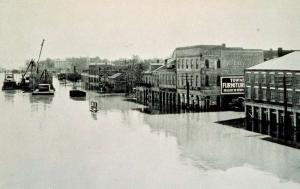
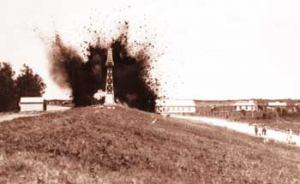 longest system of levees and floodways. By August 1927, when the flood subsided, hundreds of thousands of people had been made homeless and displaced; properties, livestock and crops were destroyed. Flooding on the Mississippi is not an unusual event, and no matter how many precautions we take, there will still be losses when the river overflows its banks.
longest system of levees and floodways. By August 1927, when the flood subsided, hundreds of thousands of people had been made homeless and displaced; properties, livestock and crops were destroyed. Flooding on the Mississippi is not an unusual event, and no matter how many precautions we take, there will still be losses when the river overflows its banks.
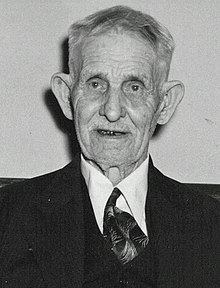
 Imagine being a witness to a part of history. Of course, we all are. We witness our part of history, because history happens all around us. It’s just that some events are more. More what you might ask. More devastating, more tragic, more exciting, just more. One such event was the assassination of President Lincoln. I can’t begin to imagine what it would have been like to go out for a night at the theater only to have the evening shattered be gunfire…and then to look up and see that your President was slumped over, bleeding, and dying. Now imagine you were just a child at the time.
Imagine being a witness to a part of history. Of course, we all are. We witness our part of history, because history happens all around us. It’s just that some events are more. More what you might ask. More devastating, more tragic, more exciting, just more. One such event was the assassination of President Lincoln. I can’t begin to imagine what it would have been like to go out for a night at the theater only to have the evening shattered be gunfire…and then to look up and see that your President was slumped over, bleeding, and dying. Now imagine you were just a child at the time.
That was the situation Samuel Seymour found himself in on April 14, 1865. On April 14, 1865, Seymour was five years old, when his godmother, who was the wife of his father’s employer took him to see Our American Cousin at Ford’s Theater in Washington DC. They were sitting in the balcony across the theater from the Presidential box. Everyone knew President Lincoln. I don’t know how star struck people got back then. Not nearly as much as today, but everyone knew him. A while later, says Seymour, “All of a sudden a shot rang out…and someone in the President’s box screamed. I saw Lincoln slumped forward in his seat.” Suddenly, John Wilkes Booth jumped from the box to the stage. What five year old boy wouldn’t remember those two events. Of course, Seymour didn’t understand what had happened to President Lincoln, 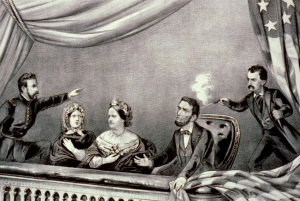 but he was very concerned for Booth, who broke his leg in the jump. He was just a child.
but he was very concerned for Booth, who broke his leg in the jump. He was just a child.
As a child, Seymour was the youngest person in the theater. Most, if not all of the people there were adults. Two months before his death, Seymour appeared on the February 9, 1956, broadcast of the CBS TV panel show “I’ve Got a Secret.” Seymour was hurt in a fall prior to the show, and the show’s producers had urged Seymour to postpone his appearance on the show. Seymour’s doctor left the choice up to Seymour, Seymour chose to go on. During the panelists correctly guessed that Seymour witnessed the assassination of Lincoln. Seymour died on April 12, 1956, and with that, the last witness to Lincoln’s assassination was gone.
 I’ve heard that in some cases, inmates who have proven themselves can become an inmate guard. I don’t know of the validity of this practice, but I do know that during the reigning Third Reich, many Jewish prisoners were forced to become guards, or Sonderkommandos, in the camps that housed the Jews. It wasn’t a paid position, or even one with added security or benefits. It was a force position…one for which the penalty of failure was death.
I’ve heard that in some cases, inmates who have proven themselves can become an inmate guard. I don’t know of the validity of this practice, but I do know that during the reigning Third Reich, many Jewish prisoners were forced to become guards, or Sonderkommandos, in the camps that housed the Jews. It wasn’t a paid position, or even one with added security or benefits. It was a force position…one for which the penalty of failure was death.
For almost three years, 2,000 Sonderkommandos did such work under threat of execution. Their fellow prisoners despised them. Everyone knew who they were, and what they did. The Sonderkommandos were both feared and hated by their fellow prisoners!! The horrors they had to endure new no bounds. Some even had to dispose of the corpses of their relatives and neighbors. I can’t imagine having to carry off a dead relative to be thrown into a mass grave without even so much as a few words said over them. The Sonderkommandos no only had to do that, but then they had to either go back to, or continue working, as if nothing had happened at all.
Being a Sonderkommando did nothing to ensure that they would survive the war, or even the next month, because the Germans either out of necessity, or just brutality, replace the Sonderkommandos every six months. I’m sure these people knew, when they were placed in the position, that their days were numbered. The problem with being a Sonderkommando was not that they fought against doing their jobs, or tried to escape, it was that they simply knew too much. These people were eyewitnesses to the atrocities of the Holocaust, and therefore a liability. They could put the Germans in prison for crimes against humanity. The Nazis could not let that happen, so they used the Sonderkommandos for six months, then killed them and replaced them with another one.
Because of this practice, only a hundred or so survived the war. These survivors were eyewitnesses to the exterminations that Holocaust deniers challenge. They were to become some of the Nazis worst nightmares. One man…Dario Gabbai, a Greek Jew, who was imprisoned at Auschwitz, is quite possibly the last of the Sonderkommandos, and certainly one of the most prominent. Gabbai settled in California after the war and 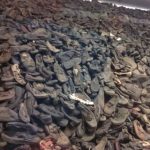 described the grim work he did in a handful of Holocaust documentaries…including “The Last Days,” which won an Academy Award for best documentary in 1999. The things Gabbai had to while he was a Sonderkommando at Auschwitz would haunt him for the rest of his life. People who have been forced to participate in horrible atrocities often blame themselves for the participation. Somehow, while logic tells us that there was nothing he could have done to stop the nightmare, he thinks he should have refused to do it, even if it meant his own death. He thinks himself a coward for being afraid to die, or for wanting desperately to live.
described the grim work he did in a handful of Holocaust documentaries…including “The Last Days,” which won an Academy Award for best documentary in 1999. The things Gabbai had to while he was a Sonderkommando at Auschwitz would haunt him for the rest of his life. People who have been forced to participate in horrible atrocities often blame themselves for the participation. Somehow, while logic tells us that there was nothing he could have done to stop the nightmare, he thinks he should have refused to do it, even if it meant his own death. He thinks himself a coward for being afraid to die, or for wanting desperately to live.
Of course, he wasn’t a coward. The very fact that he did survive makes him a hero. He was able to document the Holocaust and later relate what he witnessed. When his family reached Auschwitz, Dario’s father, mother, and younger brother were sent to the gas chambers. His sister had died as an infant, before Auschwitz. Dario and his brother, Jakob, were young…in their 20’s and strong, so they were made Sonderkommandos. He recalls seeing the doomed Jewish people taken into the gas chambers, under pretense of having a shower. Then, he remembers hearing the screams of the women and children…the crying and scratching on the walls as they desperately tried to get out…and the desperate gasping efforts to keep breathing, and then…the deathly silence. When the doors opened, the Sonderkommandos had to climb over bodies piled five and six feet high to harvest glasses, gold teeth and prosthetic limbs, before hauling out the corpses and washing down floors and walls covered in blood and excrement. Gabbai said, “I saw the people I just saw alive, the mother with the kids in their arms, some black and blue from the gas, dead. I said to myself — my mind went blind, how can I survive in this environment?” Gabbai and other Sonderkommandos had to drag the bodies to an elevator that would lift them one flight to the furnace floor. There was also a dissecting room, where jewels and other valuables hidden in body crevices would be removed. To endure such grim work, Gabbai said, he “shut down” and became an “automaton.”
The Germans preferred less common nationalities like Greek and Ladino-speaking Jews for these tasks, because they could not easily communicate the precise details of the factorylike slaughter to Polish, Hungarian and other European inmates. “They had seen too much and known too much,” Mr. Berenbaum, long-time friend of Gabbai said. It is no wonder Gabbai only wanted to get away…far away to California, after the war. When 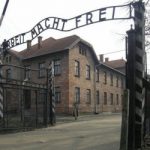 Gabbai was liberated, he weighed 100 pounds. He couldn’t face his haunting memories. He needed to get away from all German memories. He made his way to Athens, where he helped settle refugees for the American Jewish Joint Distribution Committee. In 1951, he immigrated to the United States through the sponsorship of the Jewish community of Cleveland, and two years later he moved to California for “its beautiful beaches, beautiful women and sunshine,” he told Mr Berenbaum. In California Gabbai finally found, if not peace, at least a light beyond the darkness of his past. In the mid-1950s, he married Dana Mitzman. They divorced, but had a daughter, Rhoda, who survives him. He passed away on March 25, 2020, at 97 years old, in California. Whether Gabbai ever achieved peace with his past or not will never be known.
Gabbai was liberated, he weighed 100 pounds. He couldn’t face his haunting memories. He needed to get away from all German memories. He made his way to Athens, where he helped settle refugees for the American Jewish Joint Distribution Committee. In 1951, he immigrated to the United States through the sponsorship of the Jewish community of Cleveland, and two years later he moved to California for “its beautiful beaches, beautiful women and sunshine,” he told Mr Berenbaum. In California Gabbai finally found, if not peace, at least a light beyond the darkness of his past. In the mid-1950s, he married Dana Mitzman. They divorced, but had a daughter, Rhoda, who survives him. He passed away on March 25, 2020, at 97 years old, in California. Whether Gabbai ever achieved peace with his past or not will never be known.
 I have known my sister-in-law, Jennifer Parmely since she was just 13 years old. Jennifer was just coming into her own, and she had a confidence and sophistication about her that were beyond her years. Jennifer wasn’t shy, and that made her easy to talk to, and made people want to be around her. She was a sweet girl, and I loved her immediately. I had little sisters, but now, with Jennifer and her 11 year old sister, Brenda Schulenberg, I had two more. I also got a little brother, Ron Schulenberg, and two older sisters, Debbie Cook and Marlyce Schulenberg.
I have known my sister-in-law, Jennifer Parmely since she was just 13 years old. Jennifer was just coming into her own, and she had a confidence and sophistication about her that were beyond her years. Jennifer wasn’t shy, and that made her easy to talk to, and made people want to be around her. She was a sweet girl, and I loved her immediately. I had little sisters, but now, with Jennifer and her 11 year old sister, Brenda Schulenberg, I had two more. I also got a little brother, Ron Schulenberg, and two older sisters, Debbie Cook and Marlyce Schulenberg.
Watching Jennifer grow up, I knew she had so much potential. She got a job at the hospital as a Candy Striper, as they were called then. I’m not sure what they are called now. By the time she was 17 she knew that she wanted to be a nurse, and more specifically, a Labor and Delivery Nurse. Her dream has never changed, and she worked very hard to get the degree she needed to reach her goal. She went to work at Wyoming Medical Center, and has been helping deliver babies since that time. After a number of years at Wyoming Medical Center, she is getting ready to retire in the next few years. Then she will be free to enjoy her activities and her four grandchildren, Reagan, Hattie, Bowen,  and Maeve, her kids, and her partner Brian Cratty.
and Maeve, her kids, and her partner Brian Cratty.
Jennifer has been an inspiration to us for all these years, and having her there to help with baby delivery, has been the greatest blessing of all. She especially inspired my daughter, Corrie who has decided to follow in her Aunt Jennifer’s footsteps by becoming a nurse too. Jennifer has inspired many of us. Her healthy eating habits, and her exercising have been something the whole family we have all watched for over 25 years. We also wished we were as dedicated to health as she was. Her hiking, jogging, and skiing have given all of us ideas about what we might like to do, and who we want to be when we grow up…hahahaha!! Even those of us who are older than Jennifer. Today is Jennifer’s birthday. Happy birthday Jennifer!! Have a great day!! We love you!!

